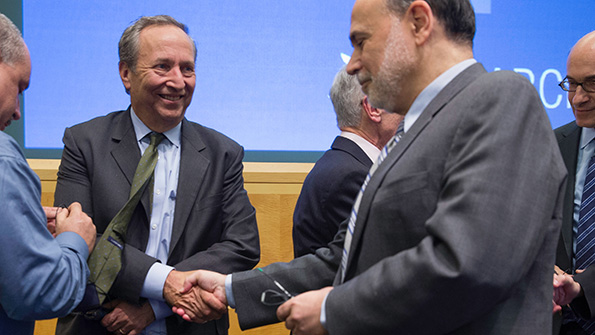
Money can buy an education, a home in an environmentally beneficial area, language lessons and mind-expanding cultural excursions. So does it make sense that it can also buy you a bigger brain? According to a study published in Nature Neuroscience, kids whose parents made more money had bigger brains than kids of the less affluent. Researchers studied 1,000 people ages 3 to 20 and found that “both income and education correlated with brain surface area, particularly in areas associated with language, reading and executive function. But further analysis showed that only income uniquely accounted for the variance in surface area,” according to the LA Times. The researchers concluded that even marginal enrichment of a child’s environment could have positive effects on development.

With over $4 trillion in assets, 401(k) plans and their participants represent a big opportunity for advisors. And according to a recent survey, individuals in such plans are eager for advice. When it comes to getting information about how to manage their retirement plans, 401(k) plan participants prefer one-on-one meetings with a financial professional, with 71 percent saying this is highly effective, according to the recent Wells Fargo/Gallup Investor and Retirement Optimism Index 2015. Sponsoring a seminar or formal presentation came in second, with 46 percent saying it was highly effective. That compares to only 21 percent and 11 percent, respectively, who say mobile messaging and social media are highly effective. Gallup surveyed U.S. adults with at least $10,000 invested in stocks, bonds or mutual funds.
It turns out that parents and their teens are a bit disconnected when it comes to the topic of paying college expenses. According to the 2015 Teens and Personal Finance Survey conducted by Junior Achievement, 48 percent of teens think their parents will help pay for college. On the contrary, only 16 percent of parents report that they plan to pay for their child’s education after high school. The study also notes a 32 percent spike in the number of teens considering local community college because of the rise in tuition costs at four-year schools. The research also asked where teenagers expect to learn about money management; 84 percent pointed to their parents. Yet 34 percent of parents responded that they do not discuss money with their children.
Possibly the Wonkiest Blog Feud Ever

Former Federal Reserve Chairman Ben Bernanke started a blog at the Brookings Institution, and it has taken him only 48 hours to pick a fight. Bernanke looked at the reasons behind why interest rates were so low, calling out Larry Summers’ secular stagnation hypothesis. The former Treasury Secretary responded in a blog post of his own, prompting Bernanke to pen an additional response. As Bloomberg sums up: “Bernanke sees monetary policy and structural reforms as the way forward. Larry Summers, the former Treasury Secretary, sees fiscal policy as the way forward. Quelle surprise, really.”




